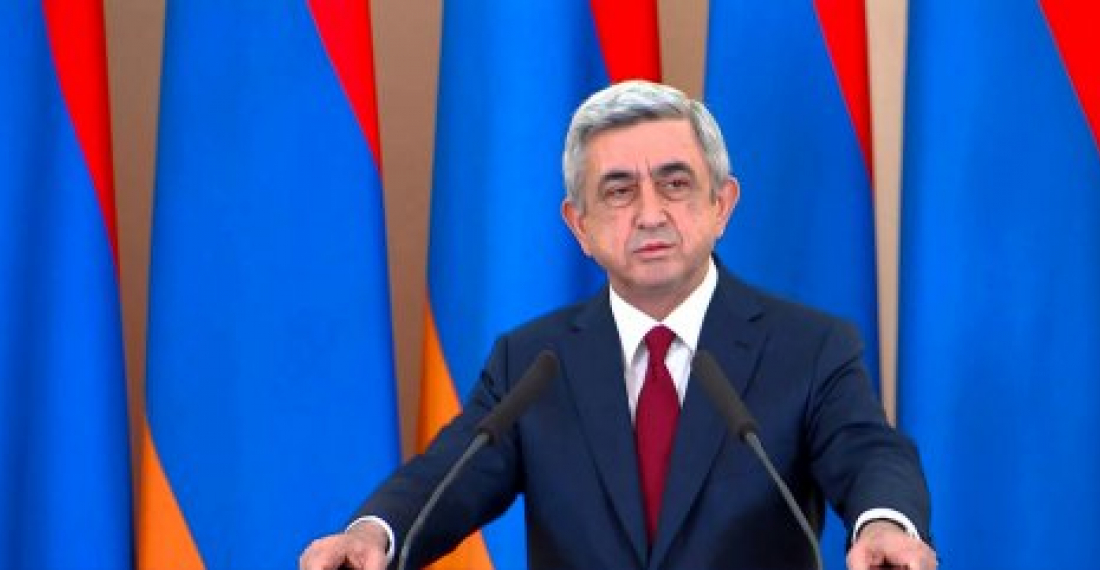Serzh Sargsyan's term as president of Armenia ends in April 2018. There is increasing speculation in Yerevan as to what role he will play in Armenian politics after that.
"Serzh Sargsyan is the irreplaceable leader of our political team, and will continue to remain so", Vice President of the National Assembly of Armenia Eduard Sharmazanov told reporters on Thursday (26 October) after a meeting of the Executive Council of the ruling Republican Party of Armenia
Sharmazanov reminded the journalists that RPA won the last election, and that it will therefore remain in government until 2022, and that the "irreplacable leader" of the RPA was Serzh Sargsyan.
However, he added that where and in what format Serzh Sargsyan will continue his future activities will be known in April 2018. "The country needs the public services of Serzh Sargsyan", Sharmazanov said.
Ever since the RPA pushed through consitituional amendments that change Armenia's governance from a presidential system to a parliamentary system with affect from April 2018, there has been speculation that President Sargsyan will on completing his second term as President become the new prime minister, following the pattern established earlier in Russia by President Putin. However it could also be that President Sargsyan may prefer to exercise political power through his control of the ruling party.
What is becoming clear however is, that in whatever role, President Sargsyan is not in a mood to retire, and will continue to play an important role in Armenian politics for some time.
Meanwhile, the process of moving executive power away from the President after next April, continues. In the last weeks, Parliament has been looking at proposals that takes away from the President the right to declare a state of emergency.
Ever since regaining independence in 1991 Armenia has been used to a strong presidency and one main source of political power. How Armenians will adjust to a multi-polar political system, and the nuance of symbolic power instead of actual power for a weakened presidency, is however still not clear.
source: commonspace.eu
photo: Serzh Sargsyan (archive picture)






